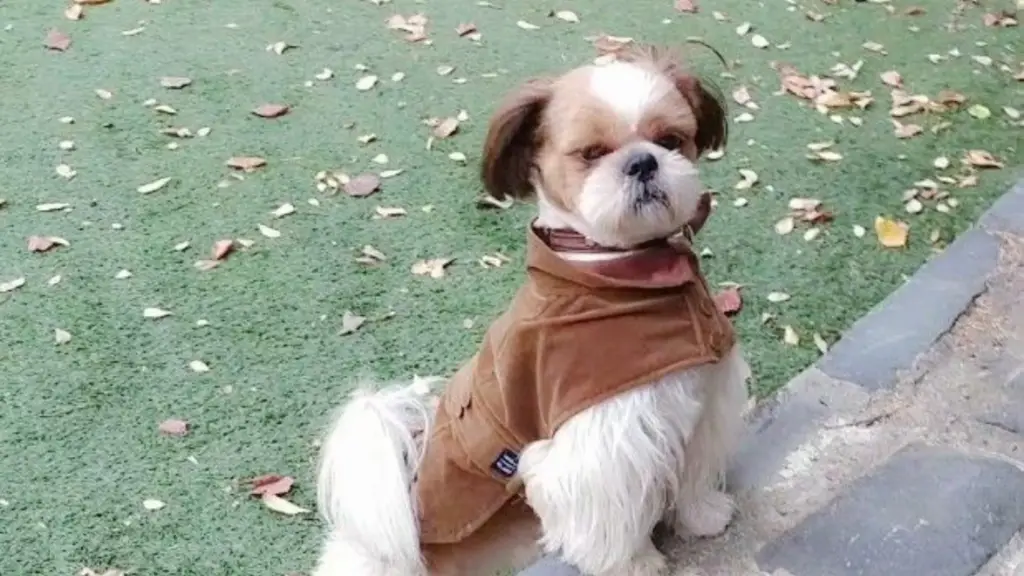
Seasonal changes can have a profound impact on the behavior of Shih Tzus. These small, affectionate dogs are known for their lively personalities and strong bonds with their owners, but like all living creatures, they are affected by the changing environment. As the seasons shift from winter to spring, summer to fall, and so on, Shih Tzus may exhibit noticeable changes in their mood, energy levels, eating habits, and overall behavior. Understanding these changes is crucial for Shih Tzu owners who want to ensure their pets remain happy and healthy throughout the year.
Understanding the Connection Between Seasonal Changes and Canine Behavior
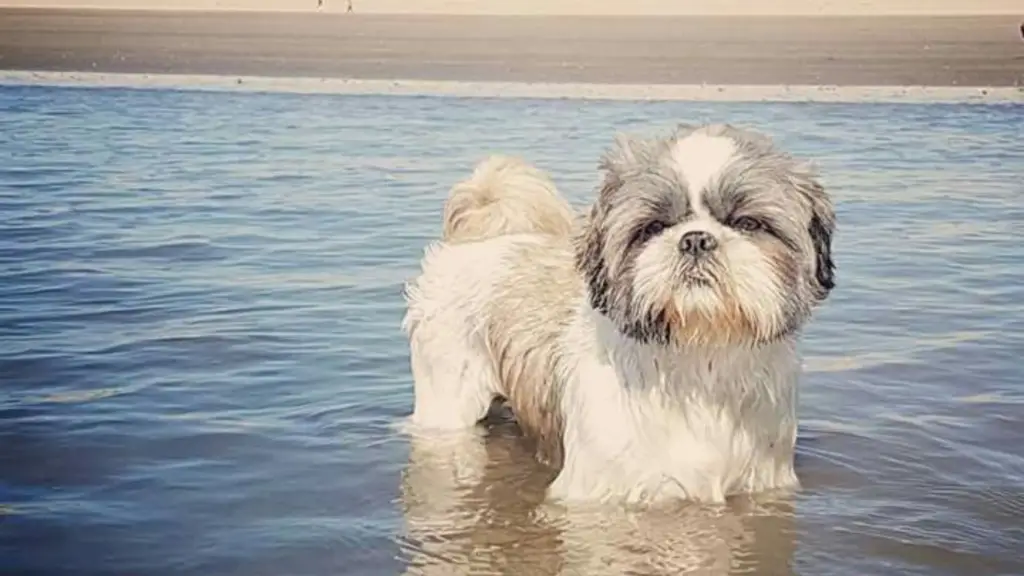
The connection between seasonal changes and canine behavior is rooted in both environmental factors and biological rhythms. Just as humans can feel sluggish during the winter or more energized in the summer, Shih Tzus may experience similar shifts due to changes in daylight, temperature, and humidity. These environmental factors can influence their circadian rhythms, hormone levels, and even their immune system. As a result, Shih Tzus may become more or less active, show changes in their appetite, or even develop new behaviors in response to the changing seasons.
Seasonal Affective Disorder in Dogs

Seasonal Affective Disorder (SAD) is a well-known phenomenon in humans, characterized by feelings of depression during the shorter, darker days of winter. Interestingly, dogs, including Shih Tzus, can also experience a similar condition. During the winter months, when daylight is limited, some Shih Tzus may become lethargic, lose interest in play, or sleep more than usual. This behavioral change is believed to be linked to reduced exposure to sunlight, which can lower serotonin levels and disrupt their circadian rhythms.
The Role of Daylight in Regulating Mood

Daylight plays a significant role in regulating mood and behavior in Shih Tzus. As the days grow shorter in the fall and winter, reduced sunlight exposure can lead to changes in the production of melatonin and serotonin—hormones that affect sleep and mood. This can result in increased sleepiness, reduced activity levels, and even changes in social behavior. On the other hand, the longer days of spring and summer can boost a Shih Tzu’s energy levels, making them more playful and active.
Temperature Sensitivity and Behavioral Changes
Shih Tzus are a brachycephalic breed, meaning they have a short nose and flat face. This physical characteristic makes them more sensitive to temperature extremes, which can lead to significant behavioral changes as the seasons change. In hot weather, Shih Tzus are prone to overheating and may become lethargic or irritable. In contrast, cold weather can lead to shivering, reluctance to go outside, and a preference for staying indoors in warm, cozy spots. These temperature-related behaviors are crucial for owners to monitor, as they can impact the dog’s overall well-being.
How Spring Affects Shih Tzu Behavior

Spring is a season of renewal and growth, and it often brings about noticeable changes in Shih Tzu behavior. As the days lengthen and temperatures rise, Shih Tzus typically become more active, curious, and engaged with their environment. The increase in daylight and warmer weather can positively impact their mood and energy levels, making spring an ideal time for outdoor activities and training sessions.
Increased Energy and Playfulness
One of the most noticeable changes in Shih Tzu behavior during the spring is an increase in energy and playfulness. After the lethargy of winter, many Shih Tzus seem to “wake up” with the arrival of spring, becoming more eager to play, explore, and interact with their owners. This surge in energy is likely due to the combination of longer days, warmer temperatures, and the abundance of new scents and sights as nature comes back to life.

Changes in Appetite and Eating Habits
Spring can also bring about changes in a Shih Tzu’s appetite and eating habits. Some dogs may eat more during the spring as they become more active, while others might show a preference for lighter, fresher foods as the weather warms up. It’s important for owners to monitor their Shih Tzu’s diet during this time and adjust portion sizes or types of food as needed to ensure their pet is getting the right nutrition for their activity level.
Increased Shedding and Grooming Needs
As temperatures rise in the spring, Shih Tzus begin to shed their winter coats, leading to increased grooming needs. This seasonal shedding is a natural process that helps regulate body temperature, but it can also result in more fur around the house and a greater need for regular brushing. Grooming is not only important for keeping a Shih Tzu’s coat healthy but also for bonding with the dog and checking for any skin issues that may arise as the seasons change.

Heightened Sensory Awareness
Spring is a season of new scents, sounds, and sights, all of which can heighten a Shih Tzu’s sensory awareness. The smell of blooming flowers, the sound of birds chirping, and the sight of more wildlife can stimulate a Shih Tzu’s curiosity and lead to more sniffing, exploring, and alertness during walks. While this increased sensory activity is generally positive, it can also lead to overexcitement or distraction, so owners should be prepared to manage their Shih Tzu’s behavior during outdoor activities.
Allergy Awareness
Spring can also bring about seasonal allergies in Shih Tzus, which may manifest as itching, sneezing, or watery eyes. Pollen from trees, grass, and flowers is a common allergen that can affect dogs just as it does humans. If a Shih Tzu shows signs of allergies, it’s important for owners to take preventive measures, such as wiping the dog’s paws after walks, limiting exposure to high-pollen areas, and consulting a veterinarian for appropriate treatments.

Outdoor Activities and Socialization
Spring is an ideal time for outdoor activities and socialization with other dogs. The pleasant weather encourages more time spent outside, whether in the backyard, at the park, or on long walks. Socializing with other dogs and meeting new people can be beneficial for a Shih Tzu’s mental and emotional well-being, helping them to develop confidence and reduce anxiety. However, it’s important to gradually reintroduce outdoor activities if the dog has been less active during the winter, to prevent overexertion.
The Effects of Summer on Shih Tzu Behavior
Summer, with its longer days and higher temperatures, brings a different set of challenges and opportunities for Shih Tzu owners. While the warmer weather can lead to more outdoor fun, it also requires extra precautions to ensure the dog’s safety and comfort. Shih Tzus, due to their brachycephalic nature, are particularly vulnerable to heat, which can significantly impact their behavior during the summer months.
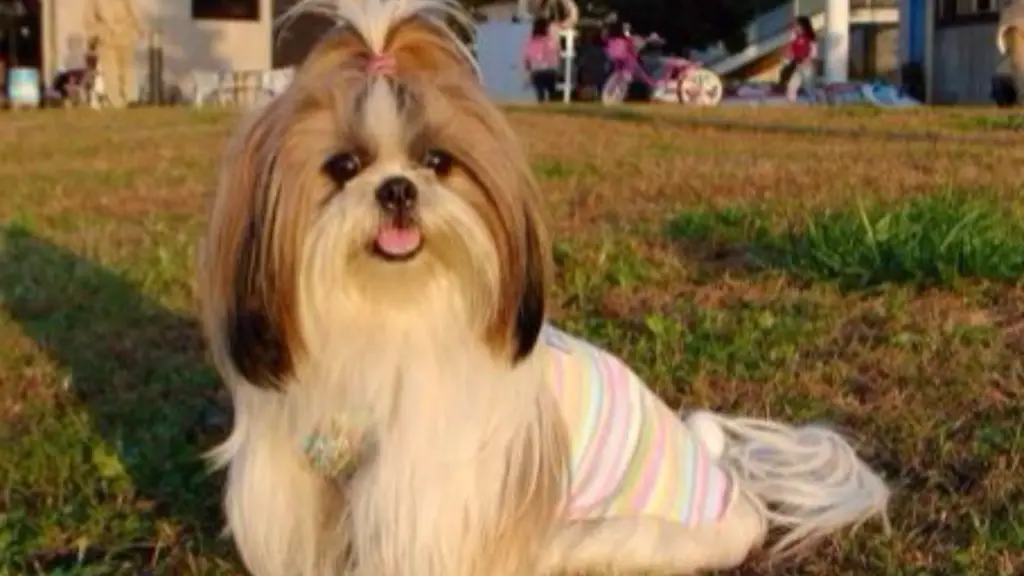
Heat Sensitivity and Cooling Measures
Shih Tzus are highly sensitive to heat, and this sensitivity can lead to behavioral changes such as seeking shade, panting excessively, or showing reluctance to go outside during the hottest parts of the day. Owners need to be vigilant about providing plenty of water, ensuring access to cool areas, and avoiding walks during peak heat hours. It’s also advisable to invest in cooling mats, fans, or even kiddie pools to help keep the Shih Tzu comfortable during the summer.
Changes in Activity Levels
Due to the risk of overheating, Shih Tzus may naturally reduce their activity levels during the summer. They might prefer to rest in cooler areas of the house or take shorter walks. While it’s important to maintain regular exercise to prevent obesity, owners should adjust the intensity and duration of activities based on the weather conditions. Morning and evening walks are preferable to avoid the midday heat, and indoor play sessions can help keep the dog active without the risk of heat exhaustion.

Hydration and Dietary Adjustments
Hydration is crucial during the summer months, as Shih Tzus can easily become dehydrated in hot weather. Owners should ensure their dog has constant access to fresh water and consider offering water-rich foods, such as cucumbers or watermelon (in moderation), to help keep them hydrated. Additionally, some Shih Tzus may show a reduced appetite in the heat, so adjusting meal times to cooler parts of the day or offering smaller, more frequent meals can help maintain their nutritional intake.
Behavioral Signs of Heat Stress
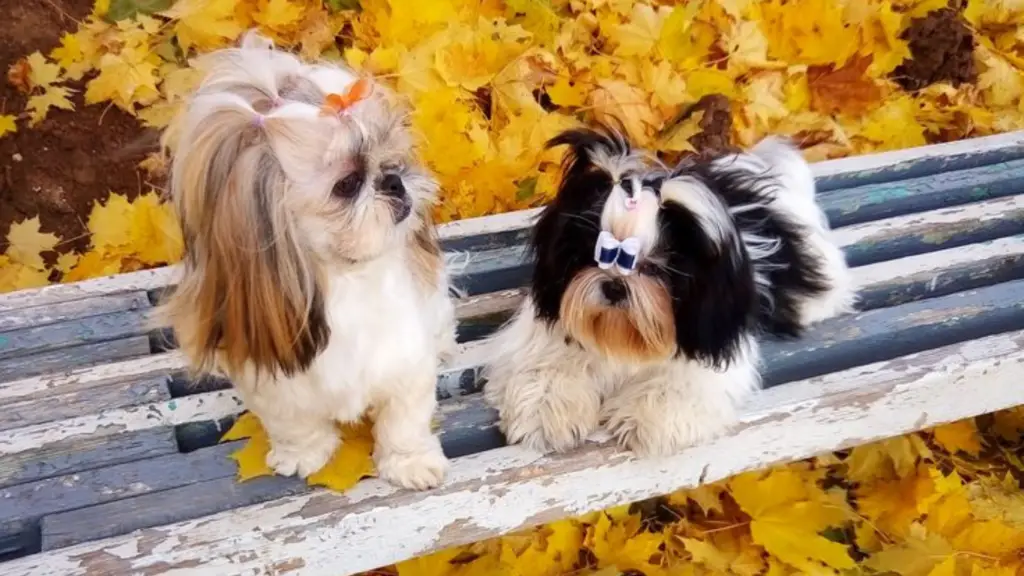
Recognizing the signs of heat stress is essential for preventing heatstroke in Shih Tzus. Behavioral signs to watch for include excessive panting, drooling, lethargy, confusion, and even vomiting. If a Shih Tzu exhibits these symptoms, it’s important to cool them down immediately by moving them to a shaded area, offering water, and applying cool (not cold) water to their body. In severe cases, seeking veterinary care promptly can be life-saving.
Increased Grooming Needs
Just like in the spring, summer can also increase a Shih Tzu’s grooming needs, particularly if the dog is spending more time outdoors. Regular brushing helps to remove loose fur and prevent matting, while trimming the coat can help keep the dog cooler. However, it’s important not to shave a Shih Tzu’s coat too short, as their fur also provides some protection against sunburn. Regular baths can help keep the dog clean and comfortable, especially after swimming or outdoor activities.

Socialization and Travel
Summer is a popular time for travel and outdoor social events, both of which can impact a Shih Tzu’s behavior. Traveling with a Shih Tzu requires careful planning to ensure their comfort and safety, particularly in hot weather. Whether it’s a road trip or a day at the beach, owners should be prepared with plenty of water, shade, and cooling options for their dog. Social events, such as barbecues or park outings, offer great opportunities for socialization, but it’s important to monitor the dog’s behavior for signs of stress or overheating.
The Impact of Fall on Shih Tzu Behavior
As the weather cools down and the days shorten, fall brings about another shift in Shih Tzu behavior. The crisp air and changing leaves often result in increased energy and enthusiasm for outdoor activities, making it a favorite season for many dogs and their owners. However, fall also presents its own set of challenges, particularly in terms of preparation for the colder months ahead.
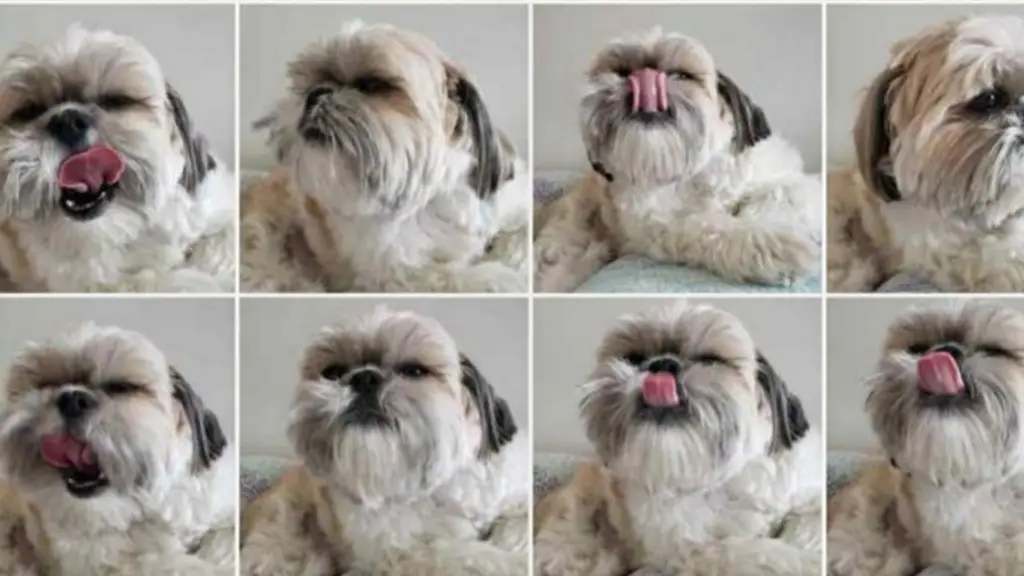
Increased Outdoor Activity and Exploration
The cooler temperatures of fall are often a welcome relief after the heat of summer, leading to increased outdoor activity and exploration. Shih Tzus may show a renewed interest in walks, hikes, and playtime as the weather becomes more comfortable. The abundance of new scents, sounds, and sights in the fall, such as falling leaves and wildlife preparing for winter, can stimulate a Shih Tzu’s curiosity and lead to more active and engaged behavior.
Changes in Appetite and Weight Management
As the weather cools, some Shih Tzus may experience an increase in appetite as their bodies prepare for the colder months. This natural response, known as “seasonal hyperphagia,” is common in many animals as they instinctively eat more to build up energy reserves for winter. Owners should be mindful of this change in appetite and ensure that their Shih Tzu’s diet is balanced and appropriate for their activity level. Monitoring portion sizes and providing regular exercise can help prevent unwanted weight gain during this time.

Preparing for Winter
Fall is a transitional season, making it an ideal time to prepare your Shih Tzu for the upcoming winter months. This may include adjusting their grooming routine to ensure their coat is ready for colder weather, checking that their bedding is warm and comfortable, and even beginning to introduce them to winter clothing, such as sweaters or booties. Proper preparation can help your Shih Tzu transition smoothly into the colder season without stress or discomfort.
Behavioral Responses to Shorter Days
As the days shorten and daylight decreases, some Shih Tzus may show changes in their behavior due to the reduction in sunlight. Similar to the effects observed in winter, shorter days can lead to increased sleepiness, reduced activity levels, or even signs of mild depression in some dogs. Providing adequate indoor stimulation, such as puzzle toys or interactive play, can help keep your Shih Tzu mentally and physically engaged even as outdoor activity decreases.

Adjusting Walk Schedules
With the shorter days of fall, it may be necessary to adjust your Shih Tzu’s walk schedule to ensure they get adequate exercise during daylight hours. Walking in the early morning or late afternoon can help take advantage of the remaining daylight while avoiding the colder, darker hours of the day. Reflective gear and safety measures, such as LED collars or leashes, are also important for ensuring your Shih Tzu is visible during walks as the evenings grow darker.
Fall Allergies and Skin Care
Fall can also bring about seasonal allergies, which may affect Shih Tzus in the form of itchy skin, watery eyes, or sneezing. Allergens such as mold, ragweed, and dust mites are more prevalent in the fall, so it’s important to keep your Shih Tzu’s environment clean and monitor them for signs of allergic reactions. Regular grooming, including baths with hypoallergenic shampoo and frequent washing of bedding, can help minimize exposure to allergens and keep your dog comfortable.
How Winter Affects Shih Tzu Behavior

Winter, with its cold temperatures and shorter days, can significantly affect Shih Tzu behavior. This season often leads to reduced activity levels, changes in eating habits, and an increased need for warmth and comfort. Shih Tzu owners must be particularly attentive during the winter months to ensure their pets stay healthy and happy despite the challenges of the season.
Cold Weather and Reduced Activity Levels
The cold weather of winter often leads to reduced activity levels in Shih Tzus, as they may be reluctant to go outside or engage in physical activities in the cold. This decrease in exercise can result in boredom, weight gain, and even behavioral issues if not addressed. Owners should make an effort to provide indoor activities and playtime to keep their Shih Tzu mentally and physically stimulated. Short, frequent walks in appropriate winter clothing can also help maintain their activity levels while protecting them from the cold.

Winter Weight Gain and Diet Adjustments
Winter weight gain is a common concern for Shih Tzus, as reduced activity levels combined with an increase in calorie intake can lead to unwanted pounds. Some Shih Tzus may naturally eat more during the winter as their bodies attempt to stay warm, while others may show less interest in food due to decreased activity. It’s important for owners to monitor their Shih Tzu’s weight and adjust their diet as needed, either by reducing portion sizes or providing lower-calorie foods. Ensuring that your dog maintains a healthy weight during the winter is crucial for preventing obesity-related health issues.
The Importance of Warmth and Comfort

Shih Tzus, with their small size and brachycephalic features, are particularly vulnerable to cold weather and require extra warmth and comfort during the winter months. Providing warm bedding, blankets, and even heated pet pads can help keep your Shih Tzu comfortable and cozy indoors. For outdoor excursions, investing in a high-quality winter coat and booties can protect your dog from the cold and prevent issues like frostbite or cracked paw pads. Keeping your Shih Tzu warm is essential for their overall well-being and can help prevent cold-related health problems.
Behavioral Signs of Seasonal Depression
Similar to humans, some Shih Tzus may experience a form of seasonal depression during the winter, characterized by lethargy, increased sleep, and a lack of interest in play or social interaction. This behavior is often a response to the shorter days and reduced sunlight, which can affect serotonin levels and mood. Providing plenty of indoor stimulation, such as interactive toys, puzzle games, and even playdates with other dogs, can help combat seasonal depression and keep your Shih Tzu engaged and happy throughout the winter.

Winter Grooming Challenges
Winter can present unique grooming challenges for Shih Tzus, as their fur may become matted or tangled more easily due to wet or snowy conditions. Regular grooming is essential to prevent mats and keep the coat healthy, but it’s important to avoid over-bathing, which can dry out the skin. Using a moisturizing shampoo and conditioner, as well as keeping the fur around the paws trimmed to prevent snow buildup, can help maintain your Shih Tzu’s coat and skin health during the winter months.
Safety Considerations During Winter Walks
Winter walks require special safety considerations to ensure your Shih Tzu’s well-being. Ice, snow, and salt can all pose risks to your dog’s paws, so it’s important to check their feet after walks and clean them if necessary. Booties can provide protection, but if your Shih Tzu isn’t comfortable wearing them, paw balm can be an effective alternative. Additionally, shorter daylight hours mean that walks may take place in low light, so using reflective gear and staying in well-lit areas is crucial for safety.
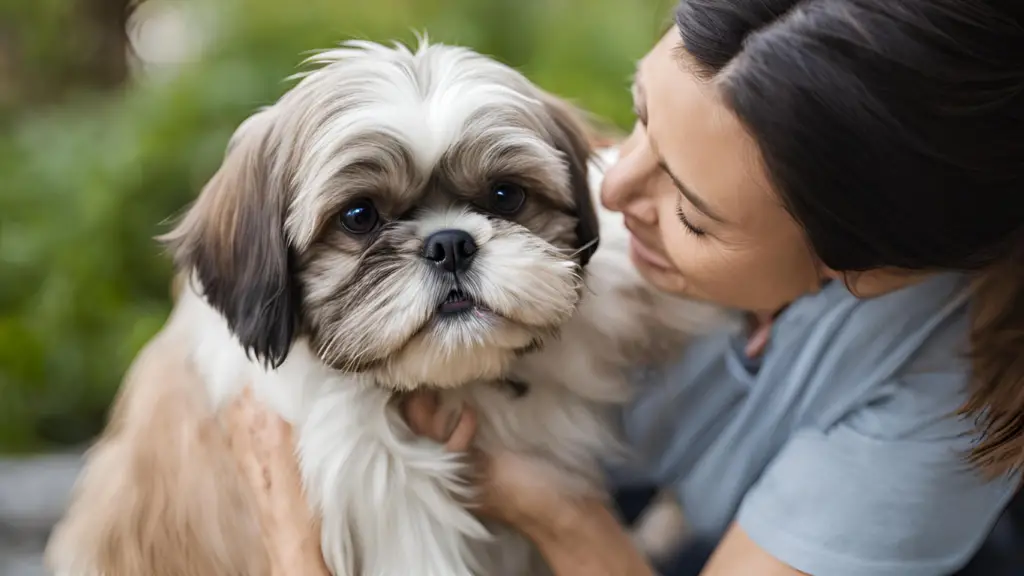
Conclusion
Understanding the impact of seasonal changes on Shih Tzu behavior is essential for providing the best care for your pet throughout the year. Each season brings its own set of challenges and opportunities, from the increased energy and playfulness of spring to the cold-weather adjustments required in winter. By being attuned to your Shih Tzu’s needs and making appropriate changes to their routine, diet, and environment, you can help ensure that they remain happy, healthy, and comfortable regardless of the season. Whether it’s providing extra warmth in winter, protecting against heat in summer, or managing allergies in spring and fall, a proactive approach to seasonal care will help your Shih Tzu thrive year-round.


